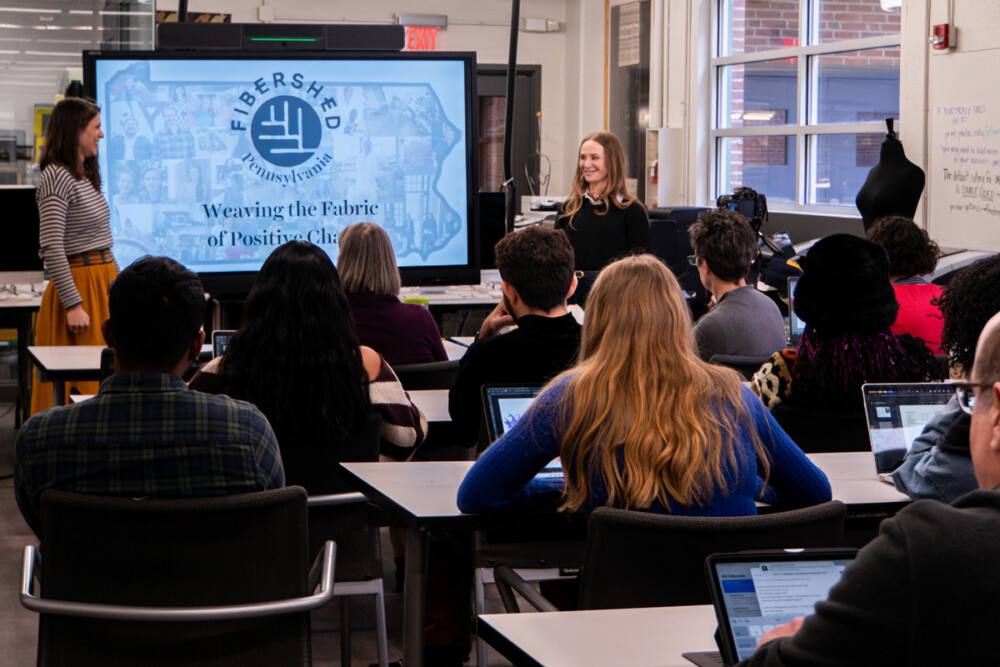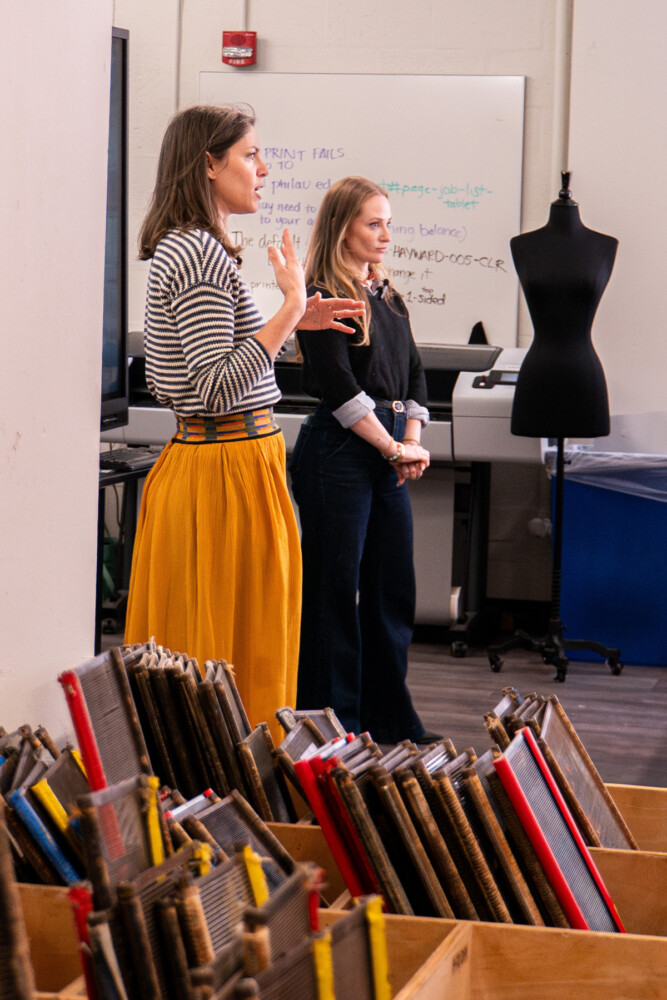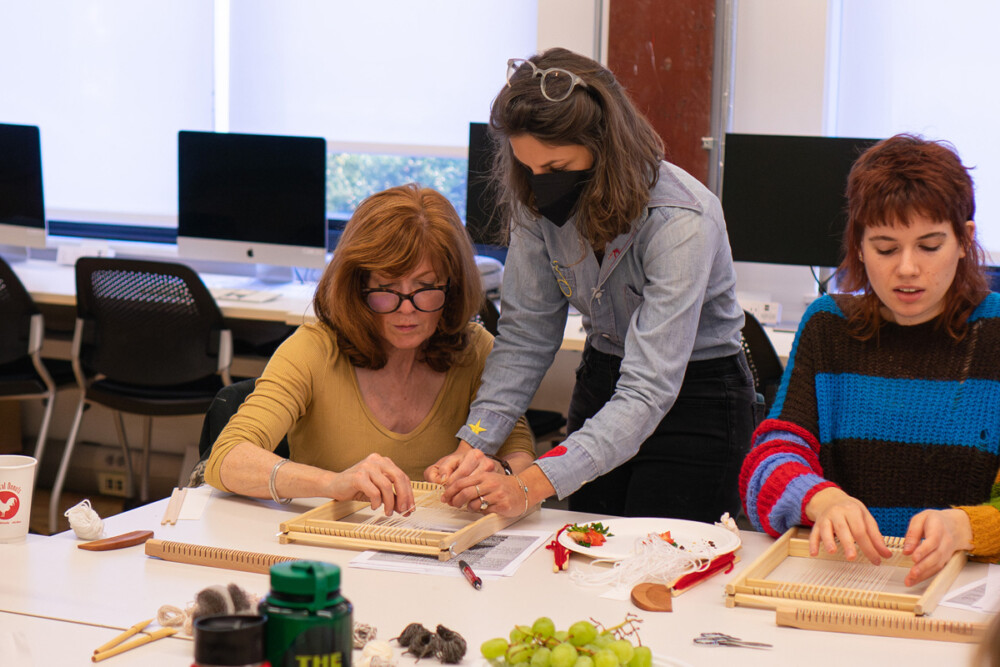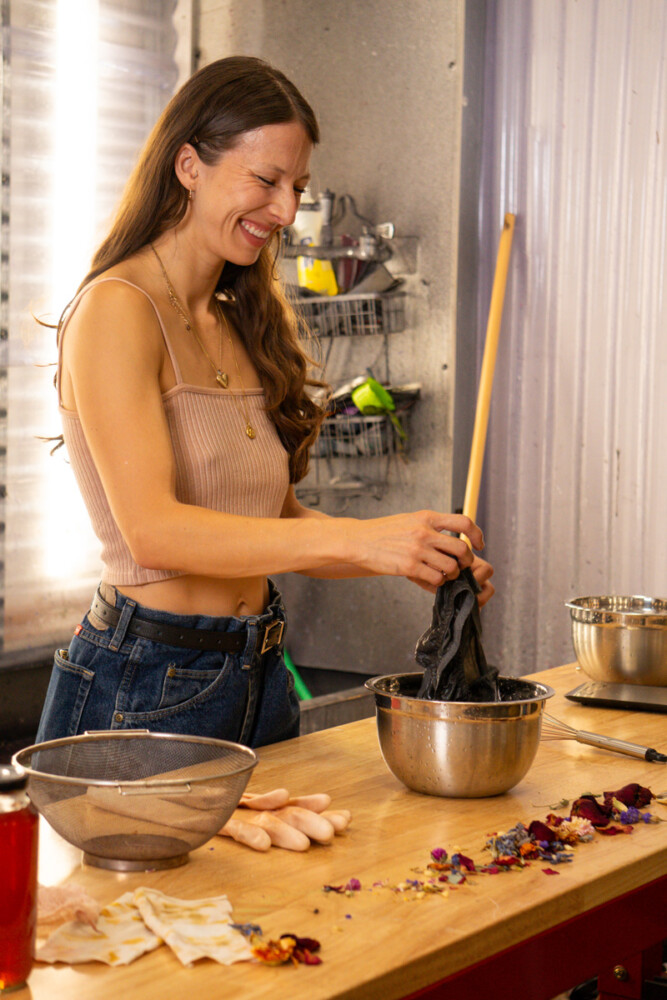
PA Fibershed rekindles the looms of the keystone state
This local nonprofit uses education and advocacy to return textiles to PA, including its latest project: the Philly Dye Co-Op.
Once upon a time, Pennsylvania bustled with the hum of looms and the rhythm of weaving shuttles. The state was a hub for textile production, producing wool, flax, hemp, and silk.
But as the modern world turned towards global trade and distant shores, this once thriving textile industry was decimated, just as it was in states like North Carolina, causing enormous economic and environmental damage.
Rachel Higgins and Leslie Davidson, co-founders of PA Fibershed, hope to reinvigorate the industry by creating a regional, circular economy for textiles that would reduce reliance on global supply chains and grow sustainable farming and local manufacturing.

What is a “Fibershed”?
A fibershed is a geographic landscape that provides the resources and infrastructure to create local fiber, dyes, and labor.
Higgins’ prior efforts with All Together Now PA, an organization founded in 2019 by Judy Wicks, laid the groundwork for building local textile supply chains for this endeavor, which now operates under the name PA Fibershed.
“We have all the pieces of the puzzle, but they are disjointed,” said Higgins. “Pennsylvania has the growing climate for fiber here in the state. We already grow wool, alpaca, mohair, hemp, and flax.”
Subsidies would allow textiles to be grown, processed, and manufactured locally. “The more available textiles are, the more they’ll be utilized,” said Davidson. “The more the demand, the lower the cost.”

As co-founders, Higgins and Davidson are dedicated to building a network of members from various sectors of the textile supply chain, including farmers, spinners, weavers, designers, manufacturers, educators, and agriculture policymakers. Through PA Fibershed, which began as a grant-funded 501(c)(3) just last fall, they coordinate educational workshops, facilitate connections within the industry, and assist members with grant applications.
Some days, they will talk to farmers about their needs, like one who is growing banana leaf fiber, a non-fruit-bearing species of banana that’s been cultivated as a textile fiber for centuries. Other days they are setting up a tour of a sheep farm in Collegeville. That farm is opening an organic mini mill, the only one of its kind in the state.
PA Fibershed is based in Philadelphia and is growing membership by word of mouth and through partner organizations like Circular Philadelphia and Fabscrap. Their membership spans the state making it challenging for all members to meet in person to share information so Davidson and Higgins are establishing an ambassador program to encourage representatives all across the state to hold in-person events like educational workshops about dying and weaving. Monthly lunch-and-learns are held online. One recent session explored fiber policy, featuring state and federal experts sharing insights on harnessing the potential of the PA farm bill and the federal farm bill. “We need government support to make changes that are scalable and can truly shift our industry back to a local level,” says Higgins.
Want to get more stories like these? Sign up for our weekly email:

Up next: Philly Dye Co-Op
Their biggest undertaking, coming this summer, is the launch of Philly Dye Co-Op. In January of 2023, member and natural dyer Kelli Silva of the brand Goddess Rising, realized there was a demand for natural dyes, but most dyers were siloed. She thought about how they could all share resources.

“Sustainability shouldn’t always be left to new designers to figure out how to make their brands more environmentally friendly. There needs to be more leaders in the industry willing to share their knowledge,” says Silva.
The Philly Dye Co-op will be a resource for designers to learn how to make their brands more sustainable while educating consumers and the community. “We can’t change the industry until we’re all working together to make it cleaner,” she explains.
Funded through a USDA grant with the help of the Keystone Development Center, the co-op will provide a collaborative space for workshops and can be rented out hourly by other dyers. “People will also be able to buy dyes made there like they are at a market,” says Higgins.
PA Fibershed is contributing to the broader fabric industry by working with national advocacy groups like Remake Our World because Pennsylvania is integral to getting the Fabric Act, a proposal to rejuvenate domestic garment manufacturing with new protections and incentives, passed. Other PA Fibershed projects include creating a state map to aid members in finding players in the supply chain.

Higgins, an Instructor of Design and Merchandising at Drexel University, focuses on educating young people about the fashion industry. She not only shares lessons about growing textiles, like the fact that hemp and flax remediate our soil, but she also exposes them to the jobs in the industry all along the supply chain they may not have thought of. “We need jobs in the US. We have all these fashion schools and we aren’t cultivating the jobs in manufacturing in those schools.”
PA Fibershed is forming a curriculum development group with the original Fibershed in California to make it easy for teachers to access lessons on things like how wool is made. “I think if we educate students on how fiber is grown and made, they will realize what it takes to make a piece of clothing and appreciate where their clothing comes from to make better choices,” Higgins says.
PA Fibershed’s success, including growing membership and knowledge-sharing among the national affiliates, has been partly attributed to the collective awakening brought about by climate change, the fast fashion backlash, and supply chain awareness raised during COVID-19. With the vision of Higgins and Davidson, the organization is not just educating and helping its members grow the textile economy, it is also capturing the generational wisdom of textile manufacturing before it fades away.









